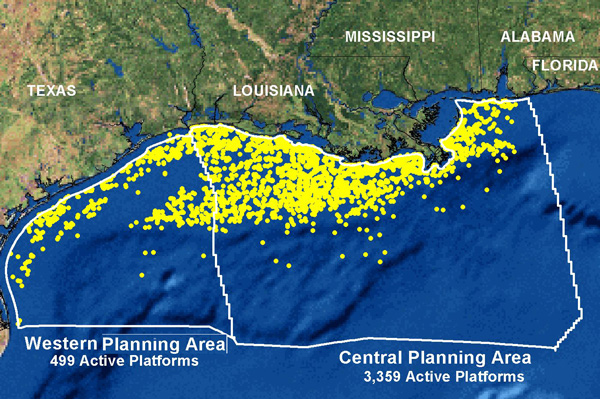This is post 1 of a 5 part series
Like most people who care about anything, I've been watching the news from the Gulf of Mexico with horror. What is almost certainly now the worst ecological disaster in US history will have mind-numbingly huge effects, probably for more than a generation. In all honesty I'm saying so little about that because I can't find a way to be articulate about it. It is entirely appropriate to be horrified, angry and deeply sad. But the level of surprise I'm seeing almost universally expressed just shows how little the public at large understands the implications of how our economy and society are organised.
The first reason we shouldn't be surprised is that there's precedent. If you aren't familiar with the Ixtoc incident, then I urge you to watch this. It's worth the 8 minutes:
Of course, just because there is a precedent that people seem to forget about doesn't guarantee that an event will happen again. It's the sheer numbers that do, and here's why.
Every process has some level of risk attached. Go and look at a package of any medicine and you'll see information about statistical risks. Multiply the risk factors by the number of people taking the drug, and you get an expected number of deaths and catastrophic side-effects per year from people taking that drug. Most countries have a fairly rigourous regulatory regime in place to make sure the benefits outweigh the risks, and most drugs do turn out to bring a net benefit to humanity, but they are approved knowing that there's some level of risk.
The same risks x frequency calculus applies to oil exploration, except that regulation is ineffectual, hard numbers are much harder to find, and the consequences of the worst things going wrong are far larger. I haven't been able to find a count for the number of oil wells in the world, but there are almost 4,000 in the northwestern Gulf Of Mexico alone, and there appear to be over 40,000 oil fields in the world.
If we use the very conservative estimate that the average oil field has 10 wells, we get 400,000 oil wells. At that scale, the risk of any given well blowing out in any given year only needs to be 1 in a million for at least one blowout per decade to be all but inevitable (p=0.98, to be precise). I don't know what the real risk factor is, but I'm pretty sure I'm underestimating the the number of wells....
It's tempting in the face of that to just wring our hands and blame the oil industry, but that's a dishonest way out.
We are all responsible for this. We have oil exploration on this scale because the entire industrialised world is heavily dependent on fossil fuels to make it run. Every time you get in a car, or buy something that was shipped from far away, or use a disposable plastic thing, you are contributing to the leviathan that is the global fossil fuel industry. It's not just the headline-grabbing catastrophes like Deepwater Horizon; we all contribute to the slow-motion oil spill from our streets every time it rains, and it doesn't even take an accident for fossil fuel extraction to be destructive.
The saddest thing about this is that it didn't have to be so. We can have a modern, technological civilisation without relying on oil for everything, but we have what we have because of a series of choices we have made as a society. This is also the most optimistic thing that can be said, because we still have the power to change it, and the rest of this series will address how.
This is post 1 of a 5 part series. Coming up:



No comments:
Post a Comment